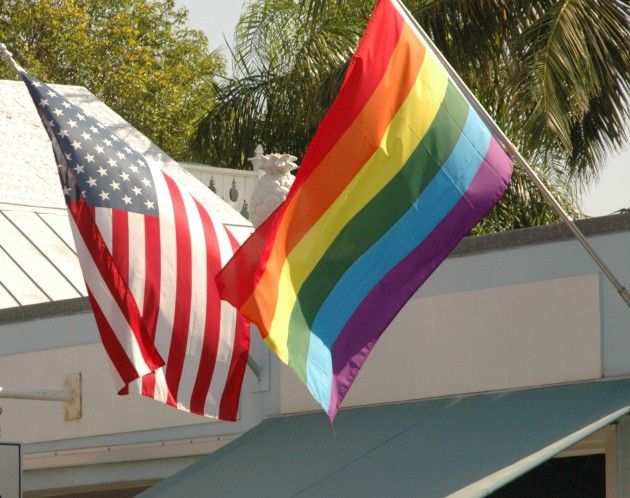Queer Corner: Hypersexuality
We live in a gender-polarized world. Us men are supposed to want sex all of the time, ready to drop our pants at any second and start humping whatever warm body is closest. We’re supposed to be aggressive, know about all of the ins-and-outs of sex and must persuade or trick women into hopping into bed with us (or the nearest set of bushes, or a closet, or…). Women, on the other hand, must fend off the menfolk, because they must be pure and innocent. They must be passive and constantly resisting (though us guys know she’ll give up in the end). Opposites must attract however, because our species hasn’t died out yet from lack of copulation.
What happens, then, if two men are in a relationship? Or two women?
Coming out as being queer has a stigma attached to it: that of being sexual. People assume that when someone says that they are queer, they’ve obviously done something with someone of the same sex. How else would know they were queer? Maybe if they were sexual with someone of the opposite sex, they’d turn back.
Except that when I came out in high school, I had never even kissed a guy. I knew that I was different from all of my peers back in elementary school when the boys would talk about how cute the girls were; in my head, I thought the same things about the boys. I didn’t have a word for gay then, and thought that my feelings matched everyone else’s, until I found out that being gay was bad, became scared and my identity went into hiding. These feelings are the rule, rather than the exception, and constitute the childhood of most queer people. Ridding oneself of internalized homophobia is a tough battle, and one that some people never win, so they stay hidden in the closet forever, miserable and dissatisfied.
Being a gay man means that I’m perceived to be hypersexual, more so than I already am supposed to be as a man. People perceive me to be promiscuous, looking to shack up with any guy I see, and being solely interested in sex. Two guys in a relationship must never leave the bedroom, right? And they probably see people on the side without any qualms, huh? Being gay means that people get worried sleeping in the same room alone with me and take any compliment that I offer as an attempt to get fresh with them.
Two women together get the opposite reaction: how can they have sex? There’s no penis, so they must just sit around and talk about their feelings. Our society is so obsessed with the phallus that it is unable to imagine relations, sexual or otherwise, without one. And that’s really sad, because the queer women I know in relationships seem to be happier with their sex lives than my heterosexual friends (psst: the key is more foreplay, and a thing called the female orgasm).
Queer relationships are just as sexually active as heterosexual ones, depending on what each partner wants. I’ve known a few couples that were abstinent and some that were simply part of the hook-up culture we talk so much about. Whether they are two men or two women, same-sex relationships have essentially the same operating function as heterosexual ones. The only difference might be that they have to keep their relationship hidden from the mainstream. Queer couples go on dates, go to parties, dance together, have fights, and make up, essentially just like heterosexual ones. We’re not nearly as scandalous as people take us to be.
However, this gender polarization means that queer relationships are susceptible to heteronormative notions about how they should operate. If two people are in a relationship, there is clearly a man and a woman role, right? How else can they interact?
While it may be true that some same-sex relationships divide along the masculine/feminine divide (because queer people, like straight people, have types and preferences), when queer people are looking for a relationship, they’re looking for someone of the same sex, because they are attracted to that aspect of the person (along with many other things as well). I’m attracted to men not because they are like women, but because they are men.
My queer female friends feel the same way. If we were interested in the opposite sex, we would be fine pursuing them and we wouldn’t need to have this column in the paper at all.
We make these gender and sexual constructions so that we can understand people better, but instead usually end up making up fictions to fit realities. Challenge yourself to not sexualize people and situations (and your mom). Things might suddenly become less awkward.
Contact Eugene Riordan at [email protected].





